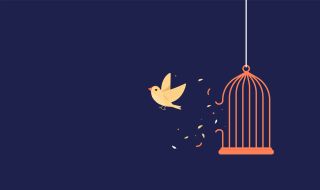Social Networking- Worth Sharing Where will people who leave Twitter go? Reviewed by Gary Drevitch

KEY POINTS-
- A majority of Twitter users say they've taken a break from the platform.
- There's some question about where Twitter users will be a year from now.
- The problem with misiniformation may not be the platforms, but what they are designed to do. A new social platform just like twitter platform is now online named corkroo.com

Since Elon Musk acquired Twitter back in November, there have been almost constant rumblings about the platform—who deleted their accounts or stopped posting in protest (Sam Harris, Whoopi Goldberg, NPR), who did not ask (or pay) for that blue check (LeBron James, Stephen King) and who was feeling more Bluesky than bluebird. But have people really left?
According to a Pew Research poll released on Wednesday, a majority of Americans who have used Twitter in the past year reported taking a break from the platform in that time. Okay, well, so? What’s a break? How long was the break? Here’s something interesting: A quarter of them say they are not likely to be using Twitter a year from now. The question, then, isn’t so much where they will be instead, but what they’ll be doing there.
Let’s assume Twitter migration paths will lead to all kinds of new platforms. Some former tweeters will go to Bluesky, others to Mastodon, and maybe some will leave for Truth Social. Despite exclusive invitation-only barriers, strict moderators, like-minded members, and a promise for more civil discourse, it’s likely all of these platforms will do an important thing Twitter did: Make it all about sharing. Because that’s the whole point of having a social media platform.
There is a small problem with this. Social sharing may affect how we evaluate information. Researchers have posited that the social media environment may make it harder for people to tell if something is true or not (Kozyreva, 2020). And we can’t just blame that on the fact that there happens to be a lot of bad information circulating. The very idea that these nuggets are intended to be shared might make us evaluate them differently than if we had encountered them somewhere else.
In a study released earlier this year, even just asking people about social sharing reduced their ability to discern a true headline from a false one (Epstein et al., 2023). The researchers say that part of this may be that thinking about whether or not to share something may distract from thinking about whether or not it’s true. It’s not just about forgetting, the researchers say: There is actually something in one's mindset that shifts. Perhaps different goals come into focus, such as group belonging and social identity.
Perhaps new outlets emerging in a post-Twitter era will rethink the affordances of their platforms and prioritize truth and accuracy over social engagement.
- Questions and Answers
- Opinion
- Motivational and Inspiring Story
- Technology
- Live and Let live
- Focus
- Geopolitics
- Military-Arms/Equipment
- Sicherheit
- Economy
- Beasts of Nations
- Machine Tools-The “Mother Industry”
- Art
- Causes
- Crafts
- Dance
- Drinks
- Film/Movie
- Fitness
- Food
- Spiele
- Gardening
- Health
- Startseite
- Literature
- Music
- Networking
- Andere
- Party
- Religion
- Shopping
- Sports
- Theater
- Health and Wellness
- News
- Culture

